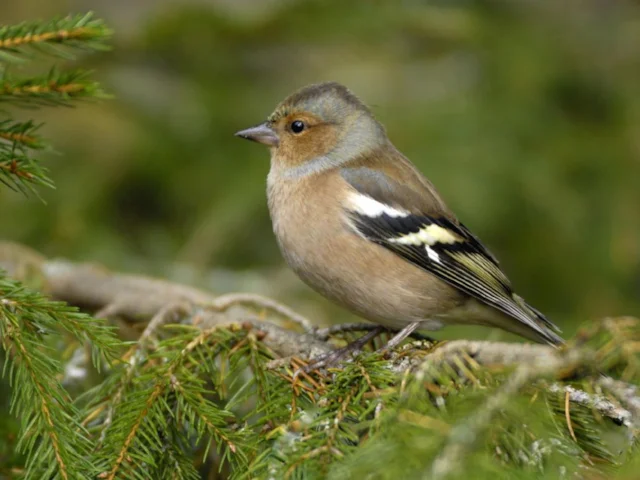Big Garden Birdwatch breaks records
1541fb2b-8b53-48e5-8c13-419d2811b3df

An unprecedented number of people took part in the RSPB Big Garden Birdwatch last weekend, with over 115,000 survey submissions and incredible four million birds counted.
The charity believes that overall participation will be at an all time high at the end of the submission period, and is urging those who haven’t logged the results of their one-hour bird count to do so by 16 February.
Big Garden Birdwatch Project Manager, Teresa Stoneage, said: “More people than ever sent us the results of their one-hour birdwatching session over the weekend alone, proving what a popular activity it is. We hope that more people will have taken part than ever before and more birds will be counted than ever before.
“Many people submitted their birdwatch results live over the actual weekend, but we keep the forms open until mid-February for all the people who wrote their counts down on paper. We just need everyone to send us their results before 16 February, so the data can be added to the hundreds of thousands of other submissions. We really mean it when we say that every garden counts, it doesn’t matter if you saw one bird species or 10 bird species – it is important that we know.
“These results can help shape the work we do and the species and habitats we focus on. If you did take an hour out of your weekend, make sure it counts and send us your results.”
Once all results have been submitted RSPB scientists will use them to see how birds and other wildlife that use our gardens are faring. Then, together with other wildlife organisations they will be able to help species in decline and find the best ways to protect them.
RSPB Conservation Scientist, Daniel Hayhow, said: “Early indications show that it was a busy time for many across the country. The temperate dip meant that more birds were out looking for food and water, which bodes well for lots of sightings. First results have shown a lot of people seem to have seen a high number of Blackcaps and Fieldfare, but we will have to wait until the results have been monitored and analysed to get the full picture from the weekend."
Big Garden Birdwatch results can be submitted until 16 February. Visit the RSPB website for more information and to submit your results online: rspb.org.uk/Birdwatch.
The charity believes that overall participation will be at an all time high at the end of the submission period, and is urging those who haven’t logged the results of their one-hour bird count to do so by 16 February.
Big Garden Birdwatch Project Manager, Teresa Stoneage, said: “More people than ever sent us the results of their one-hour birdwatching session over the weekend alone, proving what a popular activity it is. We hope that more people will have taken part than ever before and more birds will be counted than ever before.
“Many people submitted their birdwatch results live over the actual weekend, but we keep the forms open until mid-February for all the people who wrote their counts down on paper. We just need everyone to send us their results before 16 February, so the data can be added to the hundreds of thousands of other submissions. We really mean it when we say that every garden counts, it doesn’t matter if you saw one bird species or 10 bird species – it is important that we know.
“These results can help shape the work we do and the species and habitats we focus on. If you did take an hour out of your weekend, make sure it counts and send us your results.”
Once all results have been submitted RSPB scientists will use them to see how birds and other wildlife that use our gardens are faring. Then, together with other wildlife organisations they will be able to help species in decline and find the best ways to protect them.
RSPB Conservation Scientist, Daniel Hayhow, said: “Early indications show that it was a busy time for many across the country. The temperate dip meant that more birds were out looking for food and water, which bodes well for lots of sightings. First results have shown a lot of people seem to have seen a high number of Blackcaps and Fieldfare, but we will have to wait until the results have been monitored and analysed to get the full picture from the weekend."
Big Garden Birdwatch results can be submitted until 16 February. Visit the RSPB website for more information and to submit your results online: rspb.org.uk/Birdwatch.

